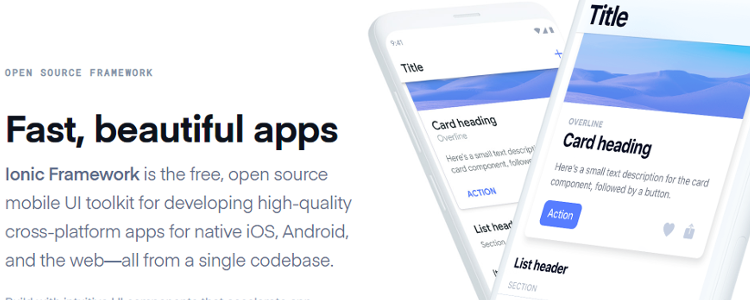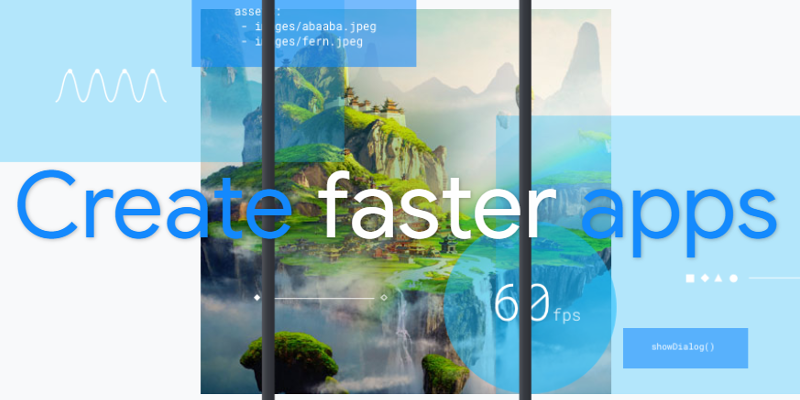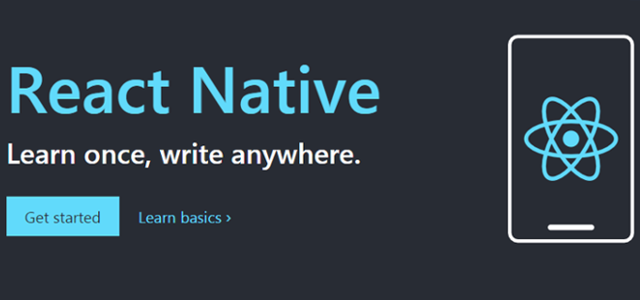
We’re excited to hear your project.
Let’s collaborate!

"Seduced" by the cross-platform approach? By the chance to build a single app project and run it on mobile, web and desktop? No wonder... But which hybrid app development framework should you choose?
What's the best one? The "best" one for your feature needs (and time resources) and for your development team's level of experience...
Now, let me guess: it should...
We've narrowed your options in terms of hybrid mobile app development tools down to... 3.
But before you rush to evaluate each one's pros and cons:
In plain English:
The hybrid app development approach is building and running one app project across multiple platforms: Android, iOS, Windows...
Now, you do the math and figure it out yourself:
One software development process (i.e a unique codebase) for all the platforms that you target...
Still a bit confused about the clear differences between native and hybrid apps?
Let me shed some more light here:
While native apps are platform-specialized — Android or iOS — hybrid apps can be deployed on multiple platforms.
In this respect, a hybrid app development framework ships with both native and web-specific elements to help you quickly design and run your "one size fits all" type of app.
Also, when it comes to the key differences between native and hybrid apps, keep in mind that:
While native apps are faster, hybrid apps get built faster.
So, it's your convenience in terms of time and budget vs... the user experience.
"Which framework is best for hybrid app development?"
9 in 10 developers will say "Ionic". 
Source: Ionicframework.com
It's the most familiar one, after all, since it's been on the "hybrid app development stage" for... quite a few years now.
Back then, when it was first released, it opened the door to a whole new world of possibilities:
With its low learning curve, "bulk" of available plugins and all the UI components that it provides out of the box, Ionic's predicted to keep its "rockstar" aura in 2020, as well.
You'd Want to Choose Ionic Because:
You'd Hesitate to Choose Ionic Because:
Is there any surprise why this is an increasingly popular hybrid app development framework?
It's Google's "prodigy" and everybody likes Google.
Although a newcomer in the "arena", Flutter stands a good chance to outshine the traditional hybrid mobile app development tools in 2020.
Source: flutter.dev
How? It already sets itself apart as a go-to choice when you need to craft a visually attractive and interactive MVP... fast.
With its flexible design components, you get to craft a stunning UI in no time. And its interactivity elements help you create the engaging experience that users expect.
In a nutshell: you get a power-packed toolkit to craft and to run a cross-platform app in no time.
Where do you add that it's designed to support multiple languages and to run smoothly across several platforms. And all that without the need to look for an alternative for Swift, Java or Objective C.
You'd Want to Choose Flutter Because:
You'd Hesitate to Choose Flutter Because:
And why do they love it?
It's Facebook's own version of a framework for building native-like apps.

Source: facebook.github.io/react-native/
If you're familiar with the React approach to software development, you'll love it.
You'd Want to Choose React Native Because:
You'd Hesitate to Choose React Native Because:
It's definitely not a framework for junior developers and startups.
Do you value a native-live experience for your end-users over a fast development process?
Is a big set of UI components, that you can just... assemble, more important to you than high speed? Is a rich collection of plugins more valuable to you than a low learning curve for your developers?
See?
Picking the right hybrid app development framework for your project means finding the (almost) perfect match between a tool's selling points and your own priorities.
So, which one's your winner?
Photo by Jacob Townsend on Unsplash

We’re excited to hear your project.
Let’s collaborate!